A Generic Data Stream with Coroutines in C++20
In my last post in this mini-series on coroutines from the practical perspective, I presented the workflow of “An Infinite Data Stream with Coroutines in C++20“. In this post, I use the generic potential of the data stream.
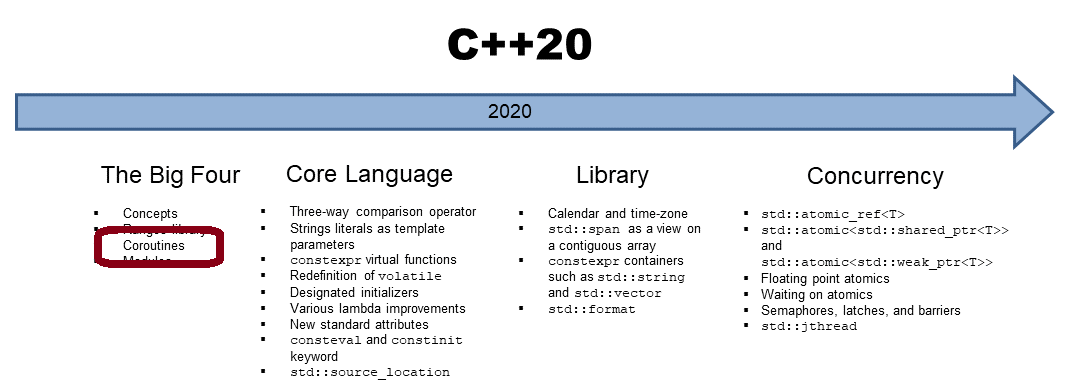
This post assumes that you know the previous post, “An Infinite Data Stream with Coroutines in C++20“, in which I explained very detailed the workflow of an infinite generator based on the new keyword co_yield So far, I have written about the new keywords co_return, and co_yield, which makes out of a function a coroutine. In the next post, I will have a closer look at the most challenging new keyword co_await.
co_return:
- Implementing Simple Futures With Coroutines
- Lazy Futures with Coroutines in C++20
- Executing a Future in a separate Thread with Coroutines
co_yield:
Finally, to something new.
Generalization of the Generator
You may wonder why I never used the full generic potential of Generator in my last post. Let me adjust its implementation to produce the successive elements of an arbitrary container of the Standard Template Library.
 Modernes C++ Mentoring
Modernes C++ Mentoring
Do you want to stay informed: Subscribe.
// coroutineGetElements.cpp #include <coroutine> #include <memory> #include <iostream> #include <string> #include <vector> template<typename T> struct Generator { struct promise_type; using handle_type = std::coroutine_handle<promise_type>; Generator(handle_type h): coro(h) {} handle_type coro; ~Generator() { if ( coro ) coro.destroy(); } Generator(const Generator&) = delete; Generator& operator = (const Generator&) = delete; Generator(Generator&& oth): coro(oth.coro) { oth.coro = nullptr; } Generator& operator = (Generator&& oth) { coro = oth.coro; oth.coro = nullptr; return *this; } T getNextValue() { coro.resume(); return coro.promise().current_value; } struct promise_type { promise_type() {} ~promise_type() {} std::suspend_always initial_suspend() { return {}; } std::suspend_always final_suspend() noexcept { return {}; } auto get_return_object() { return Generator{handle_type::from_promise(*this)}; } std::suspend_always yield_value(const T value) { current_value = value; return {}; } void return_void() {} void unhandled_exception() { std::exit(1); } T current_value; }; }; template <typename Cont> Generator<typename Cont::value_type> getNext(Cont cont) { for (auto c: cont) co_yield c; } int main() { std::cout << '\n'; std::string helloWorld = "Hello world"; auto gen = getNext(helloWorld); // (1) for (int i = 0; i < helloWorld.size(); ++i) { std::cout << gen.getNextValue() << " "; // (4) } std::cout << "\n\n"; auto gen2 = getNext(helloWorld); // (2) for (int i = 0; i < 5 ; ++i) { // (5) std::cout << gen2.getNextValue() << " "; } std::cout << "\n\n"; std::vector myVec{1, 2, 3, 4 ,5}; auto gen3 = getNext(myVec); // (3) for (int i = 0; i < myVec.size() ; ++i) { // (6) std::cout << gen3.getNextValue() << " "; } std::cout << '\n'; }
In this example, the generator is instantiated and used three times. In the first two cases, gen (line 1) and gen2 (line 2) are initialized with std::string helloWorld, while gen3 uses a std::vector<int> (line 3). The output of the program should not be surprising. Line 4 returns all characters of the string helloWorld successively, line 5 only the first five characters, and line 6 the elements of the std::vector<int>.
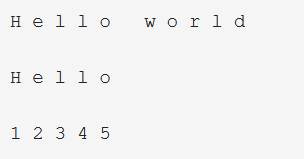
Generator<T> is almost identical to the previous one in the post An Infinite Data Stream with Coroutines in C++20. The crucial difference with the previous program is the coroutine getNext.template <typename Cont> Generator<typename Cont::value_type> getNext(Cont cont) { for (auto c: cont) co_yield c; }
getNext is a function template that takes a container as an argument and iterates in a range-based for loop through all container elements. After each iteration, the function template pauses. The return type Generator<typename Cont::value_type> may look surprising to you. Cont::value_type is a dependent template parameter for which the parser needs a hint. By default, the compiler assumes a non-type if it could be interpreted as a type or a non-type. For this reason, I have to put typename in front of Cont::value_type.
The Workflows
The compiler transforms your coroutine and runs the outer promise workflow and the inner awaiter workflow.
The Promise Workflow
So far, I have only written about the outer workflow, which is based on the member functions of the promise_type.
{
Promise prom;
co_await prom.initial_suspend();
try {
<function body having co_return, co_yield, or co_wait>
}
catch (...) {
prom.unhandled_exception();
}
FinalSuspend:
co_await prom.final_suspend();
}
Following my previous post, this workflow should look familiar to you. You already know the components of this workflow, such as prom.initial_suspend(), the function body, and prom.final_suspend().
The Awaiter Workflow
The outer workflow is based on the Awaitables, which return Awaiters. I intentionally simplified this explanation. You already know two predefined Awaitables:
std::suspend_always
struct suspend_always { constexpr bool await_ready() const noexcept { return false; } constexpr void await_suspend(std::coroutine_handle<>) const noexcept {} constexpr void await_resume() const noexcept {} };
std::suspend_never
struct suspend_never { constexpr bool await_ready() const noexcept { return true; } constexpr void await_suspend(std::coroutine_handle<>) const noexcept {} constexpr void await_resume() const noexcept {} };
No, you may already guess which parts the awaiter workflow is based on. Right! On the member functions await_ready(), await_suspend(), and await_resume() of the Awaitable.
awaitable.await_ready() returns false: suspend coroutine awaitable.await_suspend(coroutineHandle) returns: void: awaitable.await_suspend(coroutineHandle); coroutine keeps suspended return to caller bool: bool result = awaitable.await_suspend(coroutineHandle); if result: coroutine keep suspended return to caller else: go to resumptionPoint another coroutine handle: auto anotherCoroutineHandle = awaitable.await_suspend(coroutineHandle); anotherCoroutineHandle.resume(); return to caller resumptionPoint: return awaitable.await_resume();
I presented the awaiter workflow in a pseudo-language. Understanding the awaiter workflow is the final puzzle for having an intuition about the behavior of coroutines and how you can adapt them.
What’s next?
In my next post, I dig deeper into the awaiter workflow based on the Awaitable. Be prepared for the double-edged sword. User-defined Awaitables give you great power but are challenging to understand.
Thanks a lot to my Patreon Supporters: Matt Braun, Roman Postanciuc, Tobias Zindl, G Prvulovic, Reinhold Dröge, Abernitzke, Frank Grimm, Sakib, Broeserl, António Pina, Sergey Agafyin, Андрей Бурмистров, Jake, GS, Lawton Shoemake, Jozo Leko, John Breland, Venkat Nandam, Jose Francisco, Douglas Tinkham, Kuchlong Kuchlong, Robert Blanch, Truels Wissneth, Mario Luoni, Friedrich Huber, lennonli, Pramod Tikare Muralidhara, Peter Ware, Daniel Hufschläger, Alessandro Pezzato, Bob Perry, Satish Vangipuram, Andi Ireland, Richard Ohnemus, Michael Dunsky, Leo Goodstadt, John Wiederhirn, Yacob Cohen-Arazi, Florian Tischler, Robin Furness, Michael Young, Holger Detering, Bernd Mühlhaus, Stephen Kelley, Kyle Dean, Tusar Palauri, Juan Dent, George Liao, Daniel Ceperley, Jon T Hess, Stephen Totten, Wolfgang Fütterer, Matthias Grün, Phillip Diekmann, Ben Atakora, Ann Shatoff, Rob North, Bhavith C Achar, Marco Parri Empoli, Philipp Lenk, Charles-Jianye Chen, Keith Jeffery, Matt Godbolt, Honey Sukesan, bruce_lee_wayne, Silviu Ardelean, and Seeker.
Thanks, in particular, to Jon Hess, Lakshman, Christian Wittenhorst, Sherhy Pyton, Dendi Suhubdy, Sudhakar Belagurusamy, Richard Sargeant, Rusty Fleming, John Nebel, Mipko, Alicja Kaminska, Slavko Radman, and David Poole.
| My special thanks to Embarcadero |  |
| My special thanks to PVS-Studio |  |
| My special thanks to Tipi.build |  |
| My special thanks to Take Up Code |  |
| My special thanks to SHAVEDYAKS |  |
Modernes C++ GmbH
Modernes C++ Mentoring (English)
Rainer Grimm
Yalovastraße 20
72108 Rottenburg
Mail: schulung@ModernesCpp.de
Mentoring: www.ModernesCpp.org


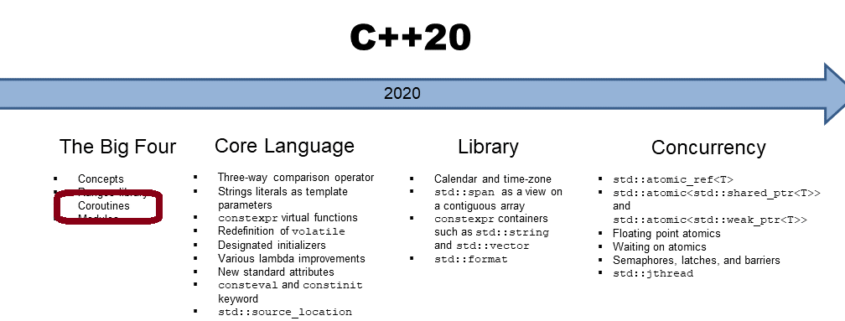
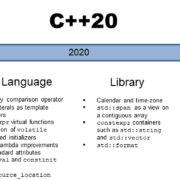
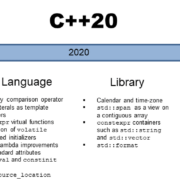
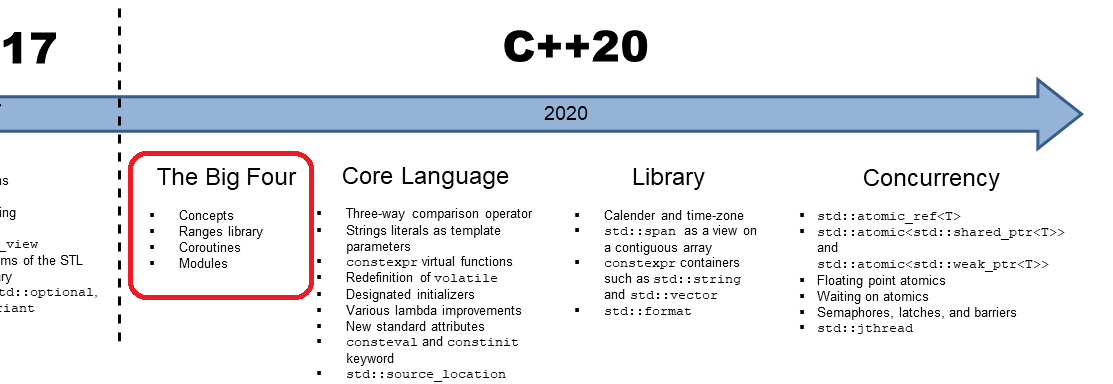

Leave a Reply
Want to join the discussion?Feel free to contribute!